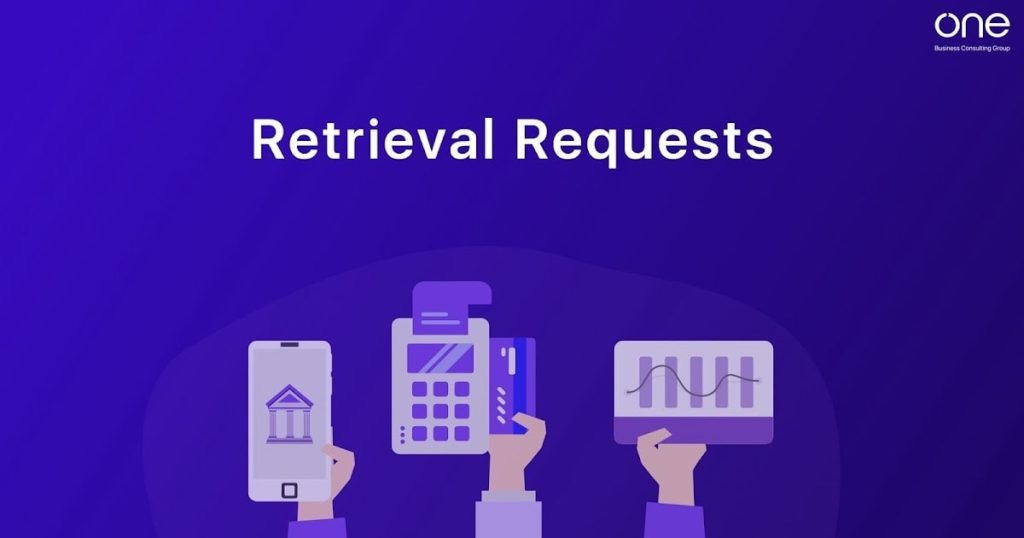Disputes between cardholders and merchants are common in payment processing. Understanding retrieval requests and chargebacks is essential for protecting revenue and managing transaction disputes effectively. Both mechanisms require action from merchants, but they have different processes and consequences. This guide outlines the differences and provides strategies to minimize their financial and operational impact.
What is a Retrieval Request?
A retrieval request is a formal inquiry from a cardholder’s bank for more details about a transaction. It often happens when a cardholder doesn’t recognize a charge or the issuing bank spots an issue with the transaction. Retrieval requests are typically precursors to chargebacks, giving merchants an opportunity to resolve disputes before funds are reversed.
Key Details:
- Initiation: The issuing bank requests transaction documentation from the merchant’s acquiring bank.
- Common Reasons: Cardholder doesn’t recognize the transaction or the receipt is illegible.
- Response Time: Merchants have 10 to 20 days to respond.
- Fees: Processing fees of $15 to $25 per request, depending on the payment processor.
Retrieval requests do not immediately result in a reversal of funds, but if not handled properly, they can escalate into chargebacks.
Table 1: Common Reasons for Retrieval Requests
| Reason | Action Required | Potential Outcome |
|---|---|---|
| Customer does not recognize the charge | Provide transaction receipt, customer information | Resolution or escalation to chargeback |
| Technical error or illegible receipt | Submit clear documentation | Issuer reviews and decides on next steps |
| Suspected duplicate or fraudulent charge | Submit evidence of transaction legitimacy | Prevent escalation to chargeback or refund |
What is a Chargeback?
A chargeback occurs when a cardholder disputes a transaction, resulting in a reversal of funds from the merchant to the cardholder. Chargebacks can stem from unauthorized transactions, undelivered goods, or disputes over the quality of goods or services.
Key Details:
- Initiation: Cardholders dispute a transaction through their issuing bank.
- Common Reasons: Fraud, goods not received, or disputes over transaction amounts.
- Financial Impact: Loss of sale, chargeback fees between $20 and $100, and potential penalties from card networks.
Merchants must provide evidence supporting the transaction within 30 days to avoid losing the dispute.
Table 2: Common Reasons for Chargebacks
| Reason | Required Documentation | Outcome |
|---|---|---|
| Product not delivered | Proof of shipment and delivery | Merchant loses revenue if evidence is insufficient |
| Transaction amount dispute | Transaction records, proof of charge | Funds may be reversed and fees imposed |
| Fraudulent transaction | Fraud prevention data, customer verification | Increased fraud monitoring may be necessary |

Key Differences Between Retrieval Requests and Chargebacks
While both retrieval requests and chargebacks address transaction disputes, they differ significantly in terms of their financial impact and resolution process.
- Financial Impact:
- Retrieval requests allow the merchant to retain funds while the dispute is resolved.
- Chargebacks result in immediate fund reversal and additional fees.
- Escalation Risk:
- Ignoring a retrieval request can lead to a chargeback.
- Chargebacks involve automatic fund reversal, and merchants face penalties if they occur frequently.
- Documentation Requirements:
- Retrieval requests typically require basic transaction information, such as a receipt.
- Chargebacks require more comprehensive documentation, such as transaction logs, customer communication, and proof of delivery.
Table 3: Key Differences Between Retrieval Requests and Chargebacks
| Aspect | Retrieval Request | Chargeback |
|---|---|---|
| Financial Impact | No immediate loss of funds | Immediate reversal of funds |
| Initiated by | Issuing bank/cardholder | Cardholder |
| Response Time | 10-20 days | 30 days |
| Documentation Required | Transaction receipts, customer info | Full evidence: receipts, shipping data, communications |
| Penalty Fees | Small processing fee ($15-$25) | Higher chargeback fees ($20-$100) |
Best Practices for Handling Retrieval Requests
Handling retrieval requests effectively can prevent them from escalating into chargebacks. Here are key strategies for merchants:
- Keep Detailed Transaction Records: Make sure all receipts, customer details, and transaction logs are easily accessible for quicker responses.
- Respond on Time: Merchants should prioritize responding to retrieval requests within the provided timeframe to avoid escalation.
- Issue Proactive Refunds When Necessary: Sometimes issuing a refund can prevent a chargeback, although this should be used carefully to avoid revenue loss.
- Leverage a Chargeback Prevention Partner: Merchants dealing with frequent disputes can benefit from working with a partner like Merchanto.org, an official VISA and MasterCard partner. Merchanto.org provides tools and expertise to help merchants reduce chargebacks. Learn more about their services here.
How to Minimize Chargebacks
Chargebacks are costly and can lead to fines or account termination. Here are effective strategies to reduce them:
- Fraud Detection Tools: Use 3D Secure authentication and other fraud prevention systems to identify suspicious activity before a transaction is completed.
- Transparent Communication: Ensure customers understand your refund and return policies to prevent disputes.
- Offer Excellent Customer Service: Resolve disputes quickly through customer support to prevent chargebacks.
- Monitor Chargeback Ratios: Payment processors may penalize businesses with high chargeback ratios. Keep this ratio below 1% to avoid fines and account suspension.
- Regularly Review Dispute Data: Analyze chargeback patterns to identify recurring issues and adjust your business practices accordingly.

Responding to Chargebacks
When a chargeback is initiated, merchants must act quickly. The chargeback process requires detailed documentation proving the legitimacy of the transaction. This includes:
- Transaction receipts
- Customer communication logs
- Proof of shipment or delivery
- Fraud prevention data
A well-organized response can resolve the dispute in favor of the merchant. However, if the evidence is insufficient, merchants lose the revenue and face additional fees. Chargeback fees are higher than retrieval request fees, typically ranging from $20 to $100 per chargeback.
Why Chargebacks Matter
Chargebacks are not just operational issues; they have significant financial implications. Frequent chargebacks can lead to increased processing fees, loss of sales, and potentially the termination of merchant accounts. Card networks like VISA and MasterCard closely monitor chargeback ratios, often setting a maximum threshold of 1%. Exceeding this ratio can result in fines or even suspension from accepting card payments.
Conclusion
Understanding the difference between retrieval requests and chargebacks is crucial for merchants. Retrieval requests offer an opportunity to resolve disputes without financial loss, while chargebacks result in immediate fund reversals and additional penalties.
By following these best practices, merchants can protect their revenue, maintain good standing with payment processors, and effectively manage disputes.



